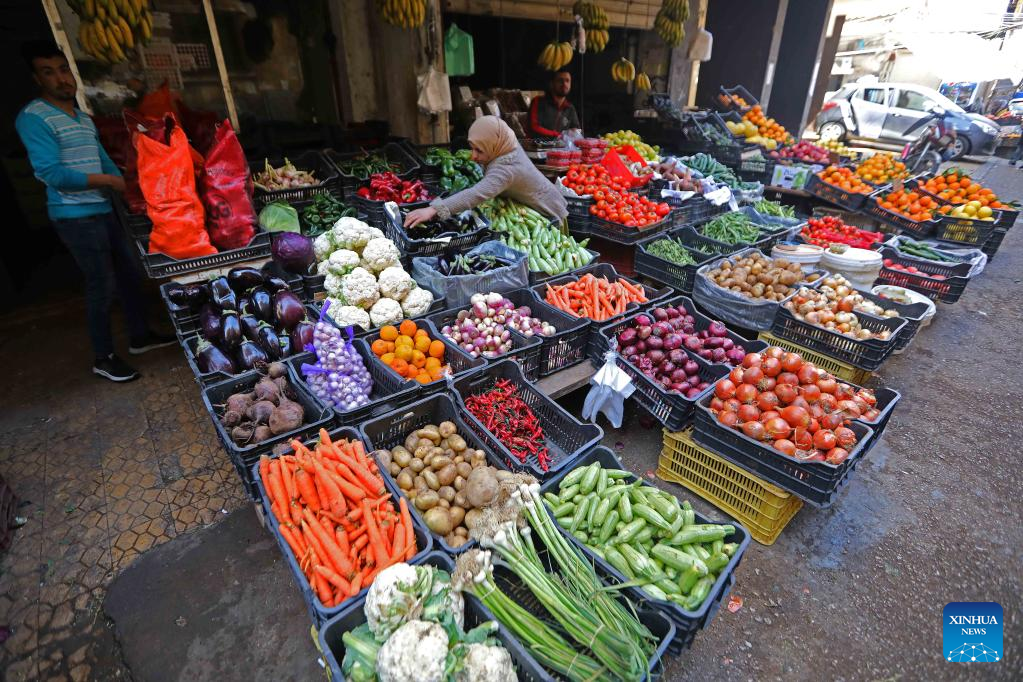
People shop for vegetables in Beirut, Lebanon, on April 13, 2022. (Photo by Bilal Jawich/Xinhua)
by Dana Halawi
BEIRUT, April 13 (Xinhua) -- With his meager income from a household appliances company in Beirut, 38-year-old Lebanese Mustafa Hejazi said he could barely able to afford enough meat for his family.
"How can I buy meat at 280,000 Lebanese pounds (11.5 U.S. dollars) per kg when my monthly salary is barely 2 million Lebanese pounds?" He asked, lamenting his poor business in the midst of an unprecedented financial crisis in Lebanon, which was exacerbated by the COVID-19 pandemic and the Beirut port explosions in 2020 that destroyed a big part of the capital city.
In Ramadan, Hejazi's menu consists primarily of yogurt, cheese, bread, lentils, and rice, with little meat or poultry this year.
"Honestly, I can only feed my family with the money I earn on a daily basis, so I am focusing mostly on relatively affordable items, and haven't been able to buy any meat or chicken for some time," Hejazi told Xinhua.
"I can no longer be able to provide my children with a decent living," he said.
Over the past three years, the multiple crises in Lebanon, including the sharp depreciation of local currency, the COVID-19 pandemic, and the deadly explosions at Beirut port, have plunged many Lebanese into poverty.
In 2021, the United Nations Economic and Social Commission for Western Asia said that the poverty rate in Lebanon was up to 74 percent, while the UN Children's Fund reported that 77 percent of households did not have enough money to buy food.
The country's crises were exacerbated by the Ukraine-Russia conflict, which led to a rise in food prices. High living costs have put a strain on Lebanon's low-income population and caused many people to limit their purchases to essential and inexpensive food items while eliminate a wide range of things from their menus.
Consumers are clearly shifting to low-cost products, said Nabil Fahd, the head of the syndicate of supermarket owners.
People are paying closer attention to the sources of imported products and avoiding the high-priced brands they used to buy before the crisis, he said, adding Lebanese consumers have also been shunning imported red meat in favor of poultry, which is cheaper and produced locally.
Fahd also saw a reduction in demand for fruits and vegetables when prices rise, which is partially owing to farmers' increasing willingness to export these products in order to earn foreign currency, resulting in a shortage in the local market.
According to Abou Hussein Ayoub, a butcher in Zarif, a middle-class neighborhood in Beirut, demand for meat from local farmers was impacted, and a large number of his clients had to eliminate meat from their diet in order to afford other less expensive products in larger quantities that could feed a big family.
"From 30,000 Lebanese pounds before the crisis to 280,000 Lebanese pounds currently, there's a 90 percent increase in meat price, and demand for meat at my shop has dropped by roughly 50 percent," he said.
To help Lebanese tackle high living costs, Lebanese Minister of Economy and Trade Amin Salam told Xinhua last month that he had discussed with shops the prospect of providing clients with an affordable food basket containing grains, beans, sugar, oil, and other basic supplies for Ramadan and onward.
According to Fahd, Lebanon's food suppliers have also been trying to help citizens by lowering their costs with shrinking package to make it more affordable, as well as importing from countries with lower prices such as Turkey, Egypt, Algeria, Morocco and those from eastern Europe, rather than from western Europe and the United States. ■
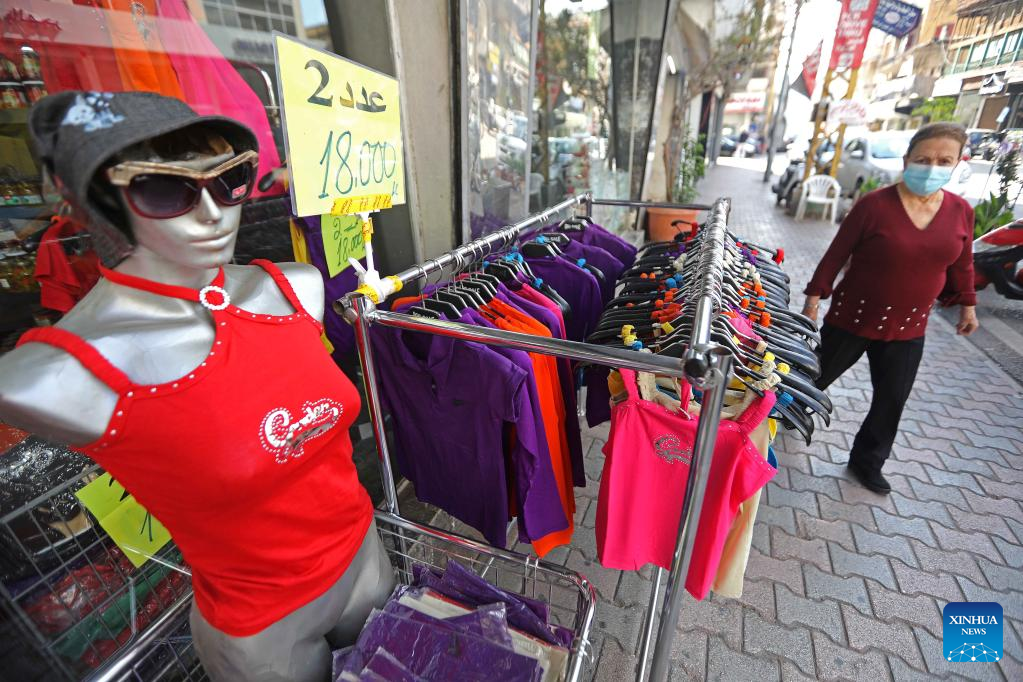
A shop selling bargain clothes is seen in Beirut, Lebanon, on April 13, 2022. (Photo by Bilal Jawich/Xinhua)
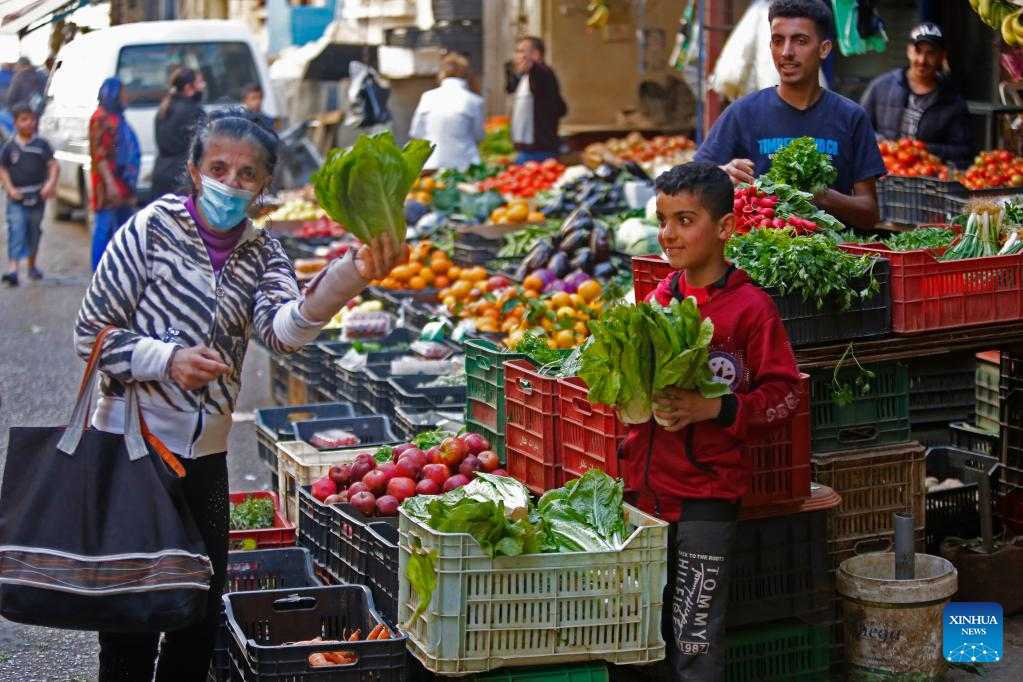
People shop for vegetables in Beirut, Lebanon, on April 13, 2022. (Photo by Bilal Jawich/Xinhua)
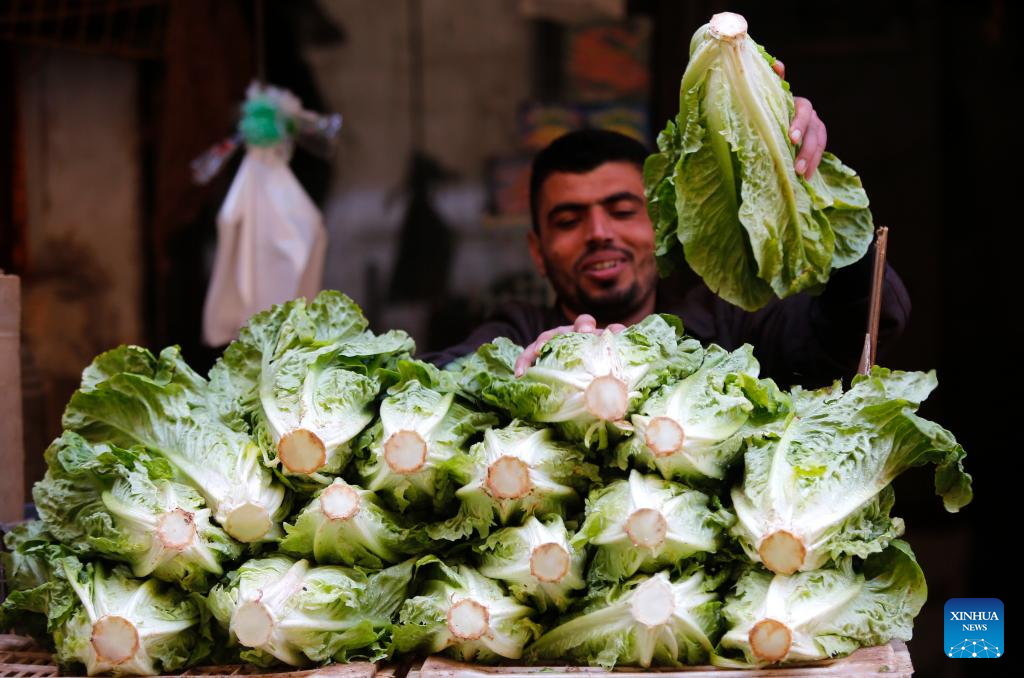
A vegetable seller is seen in Beirut, Lebanon, on April 13, 2022. (Photo by Bilal Jawich/Xinhua)
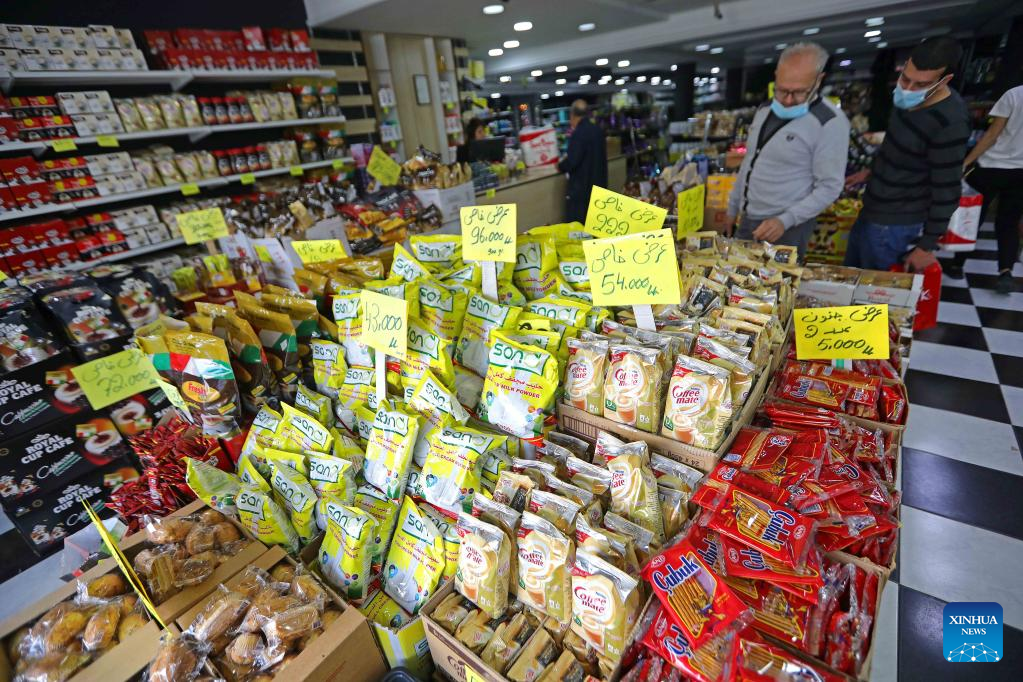
People shop for food in Beirut, Lebanon, on April 13, 2022. (Photo by Bilal Jawich/Xinhua)



